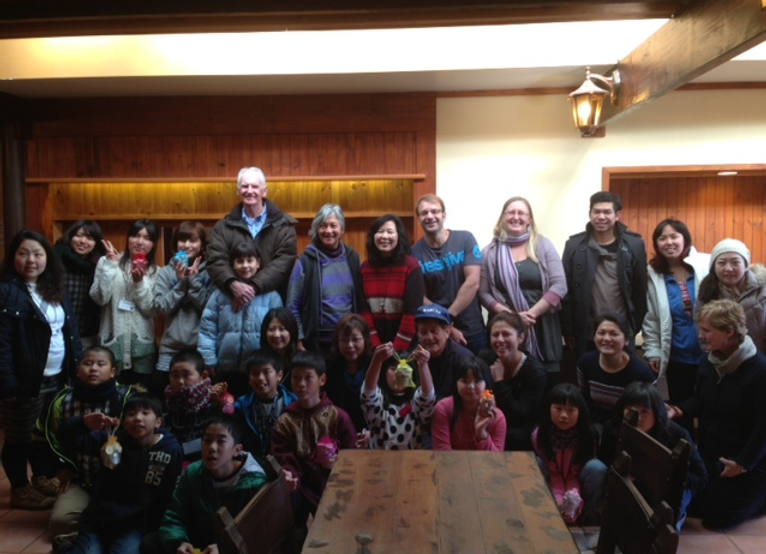
The Fukushima Project
The Fukushima Tragedy
In March 2011 the east coast of Japan was struck by an earthquake registering 9.0 on the Richter scale. The ensuing tsunami inundated 561 sq km of the countryside, destroying coastal towns, killing 15,373 persons and injuring thousands more. Missing people totalled 7,732 and totally destroyed buildings numbered 111,673.
There was a subsequent meltdown of three reactors at the Fukushima Nuclear Power Plant and efforts to contain the widening effects of this disaster on surrounding areas have been unsuccessful. The total number of people evacuated from Fukushima and the other tsunami affected areas was 142,682. ( Fire and Disaster Management Agency 16.6.2011,)
Life has forever changed for the people of Fukushima. The contaminated environment has resulted in restricting the outdoor life of children. In some areas children are allowed to play outdoors for only 45 minutes per week to minimise exposure to radiation. There are a lot of children who are forced to move away from their homes and live separated from their friends and families.
Many still suffer the effects of trauma from the loss of parents, siblings, friends and their community

What we did to help
In response to their plight, The Karuna Foundation Children's Fund, with the collaboration of the "Unite Our Hearts Project" in Japan and the "Rainbow Project" in Sydney, had invited a group of children from the Fukushima disaster zone to Australia's clean air environment from 29th July to 10th August 2013. The children aged from ten to twelve was accompanied by adult carers.
We offered the children a variety filled program including a five day home stay experience in Sydney. Excursions such as visits to the Opera House, Taronga Zoo and a cultural exchange experience at a Sydney Primary School.
Following their home stay experience the group was accommodated at the Karuna Centre Katoomba for 9 days of open air activities. From there, visits was organised to the Three Sisters Scenic area and the Jenolan Caves.
Some doctors tell us that a respite stay of this kind can provide a boost to the children's immune system. The Karuna Foundation Fukushima Project offered them a brief respite from the stress and uncertainty of living in a contaminated homeland. It provided them with an opportunity to refresh their spirits and to fully enjoy outdoor activities in a radiation-free environment.
Our wish is to give them some hope and encouragement for a better future through positive experiences in Australia.
There's a special website that was setup for this project <here>